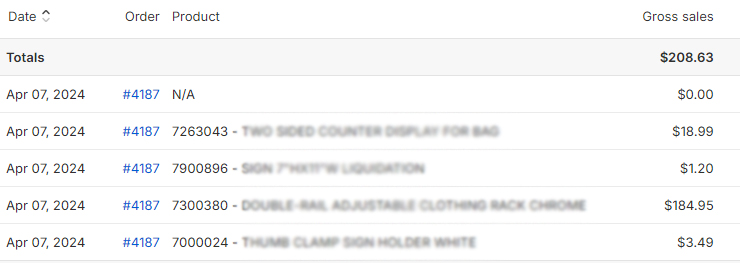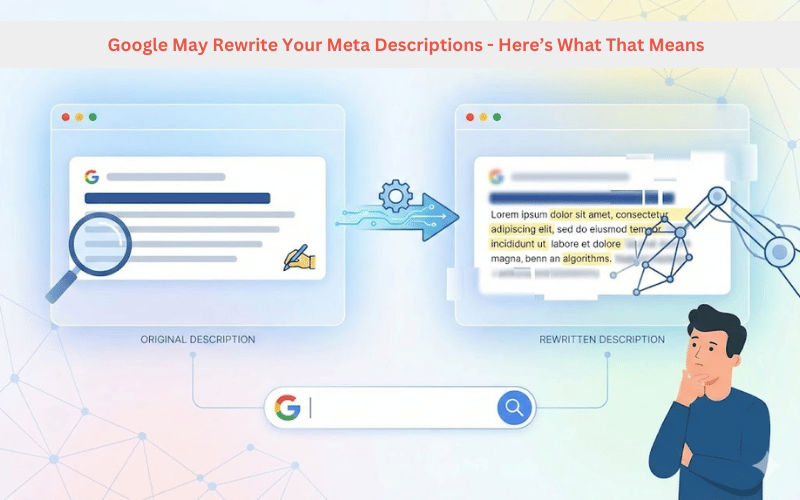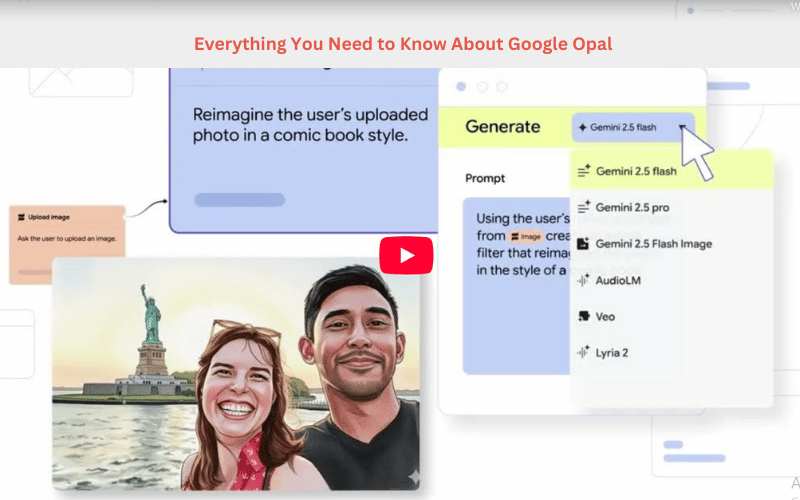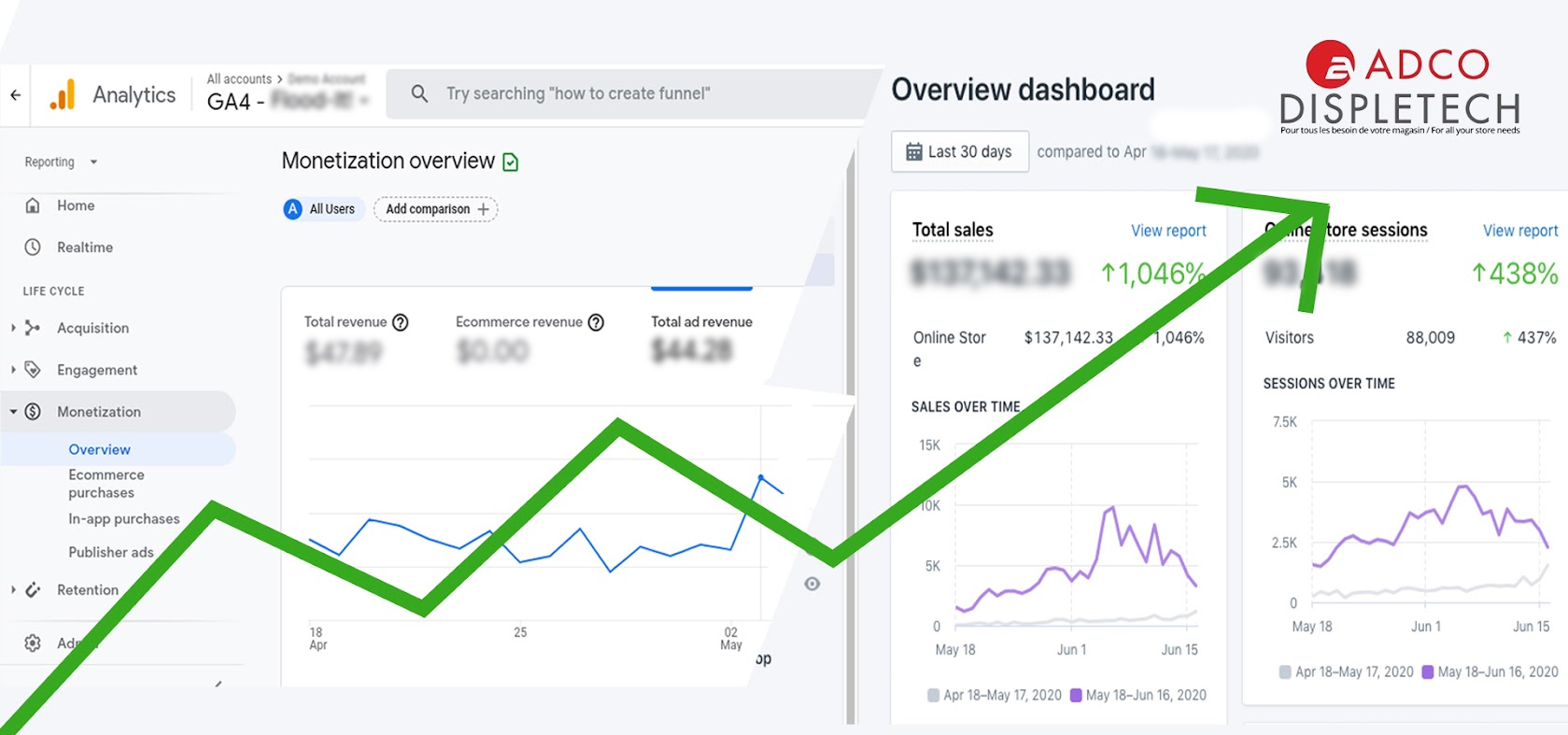Adco Displetech Case Study

Project Overview
Adco Displetech is a Canada-based retail store, that offers a diverse array of display solutions to enhance the visibility and appeal of products. With a commitment to quality and innovation, Adco Displtech’s online store serves as a one-stop destination for businesses seeking top-tier display fixtures and accessories. From sleek shelving units to eye-catching signage, they cater to a broad spectrum of industries, providing tailored solutions to meet unique merchandising needs.
Problem Statement:
The client had been experiencing data discrepancies between Google Analytics and Shopify for an extended period. They consistently requested resolution for duplicate conversions and sales data appearing on Analytics and Google Ads. Addressing this data discrepancy issue was crucial, as it directly impacted net sales. To resolve it, we implemented the following steps:
OUR APPROACH:
Our strategic approach with Adco Displetech involved deploying SEO tactics and regular updates to tackle challenges head-on. Addressing the data discrepancy issue was vital, prompting us to meticulously review and test every aspect to pinpoint the root cause. The following are solutions we tried to overcome the issue:
Website Audit:
Initially, we began with a thorough review of the website. During this audit, we identified that the primary cause of the data discrepancy was the improper creation of tags and the presence of backdated Analyzify data layers.
Google Analytics Audit:
Through a detailed audit of Google Analytics, we observed that in the debug view, the purchase event was firing twice. One was Google Analytics’ built-in “purchase” event, while the other was Tag Manager’s purchase event. These two tags were conflicting with each other.
Google Ads Audit:
To clarify things further, we reviewed the conversion ID and examined from which event we were receiving the data on Google Ads. We thoroughly checked the entire tracking process from the initial step to ensure that the correct IDs were connected with Tag Manager and Analytics.
GTM Tags Optimization:
We observed an issue with improper tag configuration. To address this, we reconfigured the purchase and checkout events and published a new container on Tag Manager.
Issue Identification:
After completing all of these steps, we were still experiencing duplicate sales. Upon further research, we observed that the “Analyzify Data Layer” code block was not updated. It was needed to update the Analyzify data layer with the latest version.
Analyzify Data Layer Code Blocks Update:
We replaced outdated code blocks with updated versions. It is necessary to update Analyzify regularly, as outdated versions can lead to issues with data discrepancies.
Disconnected Shopify’s Native Integrations:
After updating all of these files, tags, and the GTM container, we disconnected Google Analytics and Google Ads from Shopify’s “Google & YouTube App.” This app sends data to Google Analytics, which often leads to duplicate sales and conversion issues.
The Results
Through extensive research and implementation of various strategies, including disconnecting properties from Shopify’s “Google and Youtube app,” resetting tag manager containers, and updating Analyzify data layer code, we successfully solved the data discrepancy between Shopify and Google Analytics. While these steps may not yield immediate results, diligent execution promises long-term resolution, crucial for avoiding confusion in product sales and preserving client trust.
Additionally, aligning time zones between Analytics and Shopify accounts ensures timely and accurate data tracking. Moving forward, we remain committed to refining our strategies to enhance website visibility, drive accurate sales, and achieve meaningful business outcomes.


Top Ranking Keywords
Invalid category slug: adco-displetech-case-study.
Results That Speak for Themselves

Merveilleux; Rapide et efficace!!!
Optiweb Marketing nous a beaucoup aidé à mieux nous positionner sur le web. Brad est toujours bien disposé à répondre à toutes nos interrogations. Le rapport qualité/prix est excellent.
Professional work, very pleased, highly recommend!
The Only People I trust with my website. Thank You OptiWeb Marketing !
Amazing seo services. My rankings have increased tremendously. Highly recommended!
Excellent service from Brad and his team at Optiweb! Their service was thorough, prompt and efficient. Highly recommended. Five star service.
I have used Optiweb and was happy with their service, performance, and committment. I would highly recommend speaking to Brad!
Optiweb has become my own web department… the only thing is they don’t work at the office with me 🙂 They are proactive, reactive and expert all at an affordable price. Really happy with Brad and Praful! Thanks
growth
insider
Google May Rewrite Your Meta Descriptions – Here’s What That Means
read on the blog
Everything You Need to Know About Google Opal
read on the blog
Mastering HREFlang: How to Get Global SEO Right?
read on the blog
Top SEO & Digital Marketing Agencies in Montreal (2025 Edition)
read on the blog
What Is ChatGPT Atlas? The ChatGPT Browser Changing Web Experience
read on the blog
